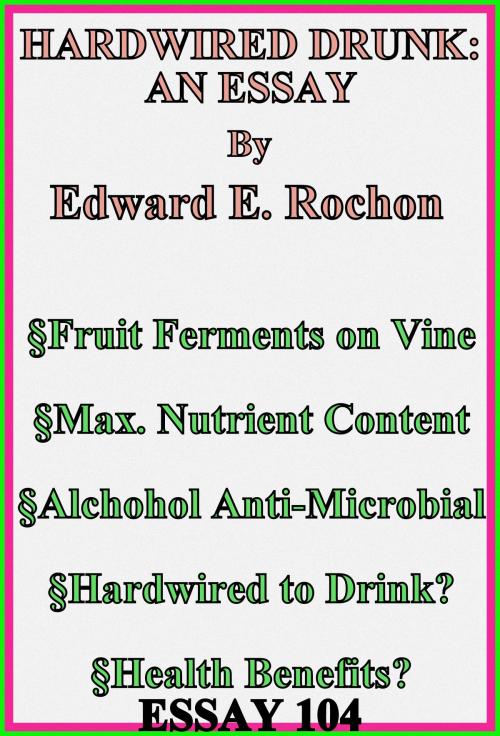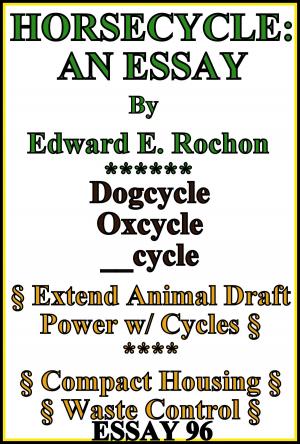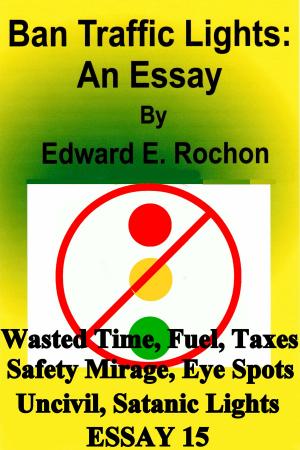Hardwired Drunk: An Essay
Nonfiction, Health & Well Being, Psychology, Addictions, Food & Drink, Beverages, Wine & Spirits| Author: | Edward E. Rochon | ISBN: | 9781370966233 |
| Publisher: | Edward E. Rochon | Publication: | September 7, 2016 |
| Imprint: | Smashwords Edition | Language: | English |
| Author: | Edward E. Rochon |
| ISBN: | 9781370966233 |
| Publisher: | Edward E. Rochon |
| Publication: | September 7, 2016 |
| Imprint: | Smashwords Edition |
| Language: | English |
A brief preface describes the scope of the work. Chapter 1 recalls a boyhood experience of eating fermented cherries. Later research showed that this is common in many fruits when extended periods of calm, sunny days occur during the harvest time. Nutrients are allowed to ripen to maximum content. Alcohol has anti-microbial attributes, extending the nutrient life we suppose. Animals enjoy eating these fruits. Chapter 2 briefly discusses views on drunkenness. Chapter 3 proposes selling naturally fermented fruit at the orchard and winery. It suggests packaging these and selling them at stores. It proposes using the fermented fruit to make alcoholic smoothies fresh. It also proposes selling the smoothies in bottled form. It also proposes bottling smoothie wine, whole fruit wines, that would generally be drank as new wine, but with a longer shelf life than store bought fresh smoothies. I note that other industries could get involved in making viable windbreaks to allow natural fermenting of the product, suggest alcoholics might supplement with or exclusively drink these products for better health. If we are hardwired to drink alcoholic beverages, we might gain insights into alcoholism.
A brief preface describes the scope of the work. Chapter 1 recalls a boyhood experience of eating fermented cherries. Later research showed that this is common in many fruits when extended periods of calm, sunny days occur during the harvest time. Nutrients are allowed to ripen to maximum content. Alcohol has anti-microbial attributes, extending the nutrient life we suppose. Animals enjoy eating these fruits. Chapter 2 briefly discusses views on drunkenness. Chapter 3 proposes selling naturally fermented fruit at the orchard and winery. It suggests packaging these and selling them at stores. It proposes using the fermented fruit to make alcoholic smoothies fresh. It also proposes selling the smoothies in bottled form. It also proposes bottling smoothie wine, whole fruit wines, that would generally be drank as new wine, but with a longer shelf life than store bought fresh smoothies. I note that other industries could get involved in making viable windbreaks to allow natural fermenting of the product, suggest alcoholics might supplement with or exclusively drink these products for better health. If we are hardwired to drink alcoholic beverages, we might gain insights into alcoholism.















